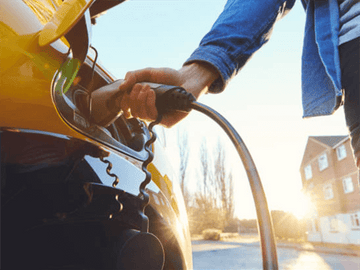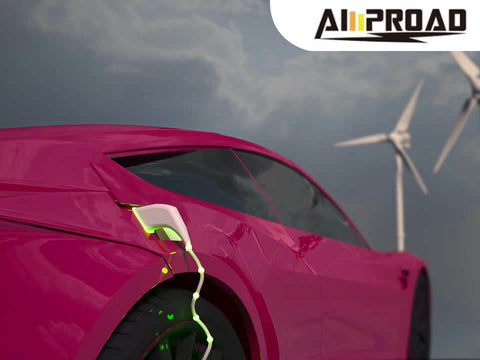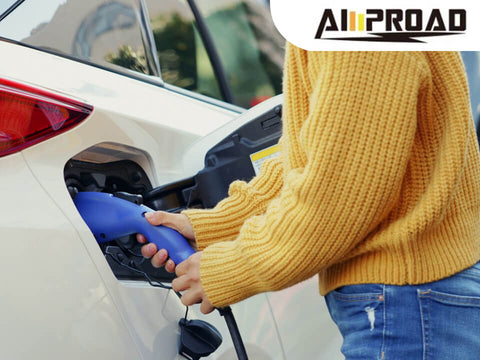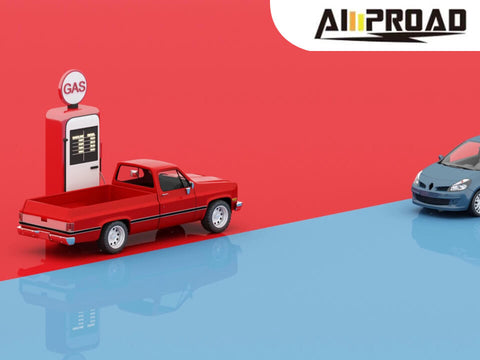
Curious if your Rivian can juice up at any charger? Wonder no more. We delve into whether Rivian vehicles mesh with non-Rivian chargers and what factors govern this compatibility. From standard protocols to proprietary systems, understanding the nuances is key to seamless charging experiences. Let's explore the ins and outs, shedding light on what determines if your Rivian can plug in anywhere or requires specific adaptations. Whether you're planning road trips or navigating daily charging routines, knowing the compatibility landscape ensures you're powered up wherever the journey takes you.
Understanding Rivian Charging Compatibility
Let's explore the compatibility landscape and what it means for Rivian owners.
Do Rivian vehicles utilize standard charging protocols, or do they have proprietary systems?
Rivian vehicles stand out for their compatibility with standard charging protocols. Unlike some competitors, Rivian opts for industry-standard connectors, easing the search for compatible chargers. This adherence to common standards ensures that Rivian owners have a wide array of charging options available, whether on the road or at home.
Are there specific requirements or adaptations needed for Rivian vehicles to use chargers from other manufacturers?
When it comes to charging from other manufacturers, Rivian owners have options:
- Level 2 Chargers: Rivian vehicles seamlessly integrate with Level 2 charging stations using the J1772 connector, the prevailing standard for Level 2 AC charging. Whether at public stations or EVSE home chargers, Rivian drivers can plug in directly without the need for any adapters, simplifying the charging process.
- Tesla Superchargers: Rivian recently announced compatibility with Tesla Supercharger stations, expanding charging possibilities for Rivian owners. However, to utilize these fast-charging stations, Rivian owners will need to purchase a special adapter from Rivian. This adapter ensures a secure connection between Rivian vehicles and Tesla Supercharger stations, providing access to Tesla's extensive charging network for Rivian drivers on the go.
- In a Nutshell:
- Level 2 J1772 Charger: Rivian vehicle can directly utilize it without any additional adapters.
- Tesla Superchargers: Rivian owners can access Tesla's Supercharger network with a dedicated adapter from Rivian.
With Rivian's commitment to standard protocols and adaptability, owners can confidently charge their vehicles at various stations, ensuring a seamless and convenient charging experience wherever their electric adventures take them.
Compatibility Testing and Certification
Ensuring your Rivian can seamlessly connect to charging stations is a key part of the electric vehicle (EV) ownership experience. Let's delve into Rivian's approach to compatibility:
Rivian prioritizes compatibility. Their vehicles undergo rigorous testing with a wide range of chargers to guarantee a smooth charging experience. This testing ensures Rivian EVs can communicate effectively with various charging stations, allowing for safe and efficient energy transfer.
Industry standards play a crucial role in Rivian's compatibility strategy. They adhere to established charging protocols, like the J1772 standard for AC charging Level 2 EV charger in North America. This standardization guarantees your Rivian can connect to most public charging stations and home chargers without any worries.
In addition, relevant certifications further solidify compatibility. By following these industry guidelines and certifications, Rivian assures owners that their vehicles can safely interact with compatible charging infrastructure.
So, you can rest assured that Rivian takes compatibility seriously. Their commitment to testing, adherence to standards, and certification practices give you peace of mind, knowing your Rivian can access the growing network of charging stations.
User Experience and Feedback
What experiences have Rivian owners reported regarding charging with non-Rivian chargers?
As per the Rivian Forums online community, many Rivian owners report a positive experience using standard Level 2 chargers with J1772 connectors. These chargers, commonly found at public stations and home installations, work flawlessly with Rivian vehicles. Owners simply plug in and enjoy the convenience of charging without needing any special adapters (Source: Rivian Forums online community).
Are there common issues or challenges encountered when using chargers from other manufacturers?
Rivian's recent integration with Tesla Superchargers opens up a vast network of fast-charging stations. However, some user experiences highlight the need for the special Rivian adapter for this option. While the adapter provides flexibility, a few owners mentioned it adds an extra step to the charging process (Source: Rivian subreddit on Reddit).
Challenges and Considerations:
While generally positive, user experiences also reveal some potential challenges:
- Availability and Reliability of Public Chargers: As with any EV ownership experience, access to reliable public charging stations can vary depending on location. This is a broader industry issue, not specific to Rivian vehicles.
- Station Occupancy: Public charging stations can get busy, especially during peak hours. This might require some waiting time, similar to filling up at a gas station.
Overall, Rivian owners seem to appreciate the ease of charging with standard stations and the expanding options with Tesla Superchargers (using the adapter). While some variability exists regarding public charger availability and occupancy, these challenges are common across the EV landscape.
Potential Solutions and Workarounds

Ensuring your Rivian stays juiced up is a key part of the electric vehicle ownership experience. But what happens if you encounter a charger that's not quite Rivian-friendly? Let's explore some solutions and alternative strategies:
Are there adapter options available to enable Rivian vehicles to use chargers from other manufacturers?
While Rivian prioritizes standard protocols for broad compatibility, there might be situations where an adapter provides additional flexibility. The most notable example is Rivian's recent announcement regarding Tesla Superchargers. These powerful fast-charging stations require a special adapter from Rivian to connect your vehicle. While it adds an extra step to the process according to some user experiences ([Source: Rivian subreddit on Reddit]), the adapter unlocks access to a vast charging network.
What are some alternative charging strategies or options for Rivian owners when faced with incompatible chargers?
Even with standard protocols, unforeseen situations can arise. Here are some alternative strategies to consider:
- AMPROAD Level 2 J1772 Charger: A popular choice for home charging, the AMPROAD Level 2 J1772 charger offers a convenient and reliable way to keep your Rivian topped off overnight. This widely available charger type seamlessly integrates with your Rivian, ensuring a stress-free charging experience.
- Planning and Apps: Trip planning and charging station finder apps are valuable tools for Rivian owners. By identifying compatible charging stations along your route beforehand, you can avoid any surprises and ensure a smooth journey. Popular options include PlugShare, ChargePoint, and the Rivian app itself.
- Community Support: The Rivian community is a valuable resource. Online forums and communities can offer real-time insights and recommendations from fellow Rivian owners. They can share experiences with various charging stations and suggest alternative options if needed ([Source: Rivian Forums online community]).
Remember, public charging station availability and occupancy can vary depending on location. This is a broader industry issue, not specific to Rivian vehicles. However, by employing a combination of adapter options, alternative charging strategies, and leveraging the Rivian community, you can ensure your electric adventures are never hampered by a lack of charging options.
Future Considerations and Developments

The world of electric vehicles (EVs) is constantly evolving, and charging compatibility is a crucial aspect of that evolution.
Are there plans for Rivian to expand compatibility with chargers from other manufacturers in future vehicle models?
The good news for Rivian owners is their commitment to future compatibility. New Rivian models, like the R2 SUV expected in 2026, will come equipped with built-in support for the North American Charging Standard (NACS) championed by Tesla. This means these vehicles won't require an adapter to access Tesla Superchargers, streamlining the charging process. Additionally, Rivian might explore incorporating compatibility with other emerging charging standards as technology advances.
What advancements in charging technology may impact the compatibility of Rivian vehicles with non-Rivian chargers?
The future of charging technology presents both opportunities and challenges for Rivian's compatibility strategy. Here's a glimpse into what might unfold:
- Faster Charging Speeds: Advancements in battery technology could lead to the development of even faster charging options. While this is positive for efficiency, Rivian will need to ensure its vehicles can handle these higher charging rates without compromising battery health.
- Standardization Efforts: Industry-wide efforts to establish universal charging standards could significantly simplify compatibility concerns for all EV owners, including Rivian drivers.
- Staying Ahead of the Curve: Rivian seems committed to staying ahead of the curve in terms of charging compatibility. Their focus on standard protocols in current models and exploration of future technologies like NACS integration demonstrate this commitment. As the EV landscape continues to develop, Rivian's adaptability will be key to ensuring their vehicles remain compatible with the evolving charging infrastructure.
What Do You Need to Know About Charging Compatibility?
Hitting the road in your Rivian shouldn't be a guessing game when it comes to charging. Let's break down the key points for Rivian owners regarding compatibility with various charging stations:
Rivian and Charger Compatibility: Mostly Seamless
Generally, Rivian vehicles play nicely with others! They adhere to industry standards, particularly the J1772 connector for Level 2 AC charging, the most common type at public stations (not including the Tesla destination charger) and home installations. This means you can plug in and charge your Rivian without needing any special adapters for these stations.
However, there's one notable exception: Tesla Superchargers. While Rivian recently announced compatibility with this fast-charging network, it requires a special adapter from Rivian.
Key Considerations for Rivian Owners:
- Adapter for Tesla Superchargers: If you plan on using Tesla Superchargers, keep in mind the need for the Rivian adapter. While it expands charging options, it adds an extra step to the process.
- Public Charger Availability: As with any EV, access to reliable public charging stations can vary depending on location. Planning your trips with charging apps like PlugShare or ChargePoint can help avoid surprises.
- Community Support: The Rivian community forums are a valuable resource. Fellow owners can share experiences with various charging stations and suggest alternatives if needed.
Overall, Rivian prioritizes standard protocols for broad compatibility. While the Tesla Supercharger scenario requires an adapter, most charging experiences should be seamless. By considering these points and leveraging available resources, you can ensure your Rivian adventures are never limited by charging concerns.



